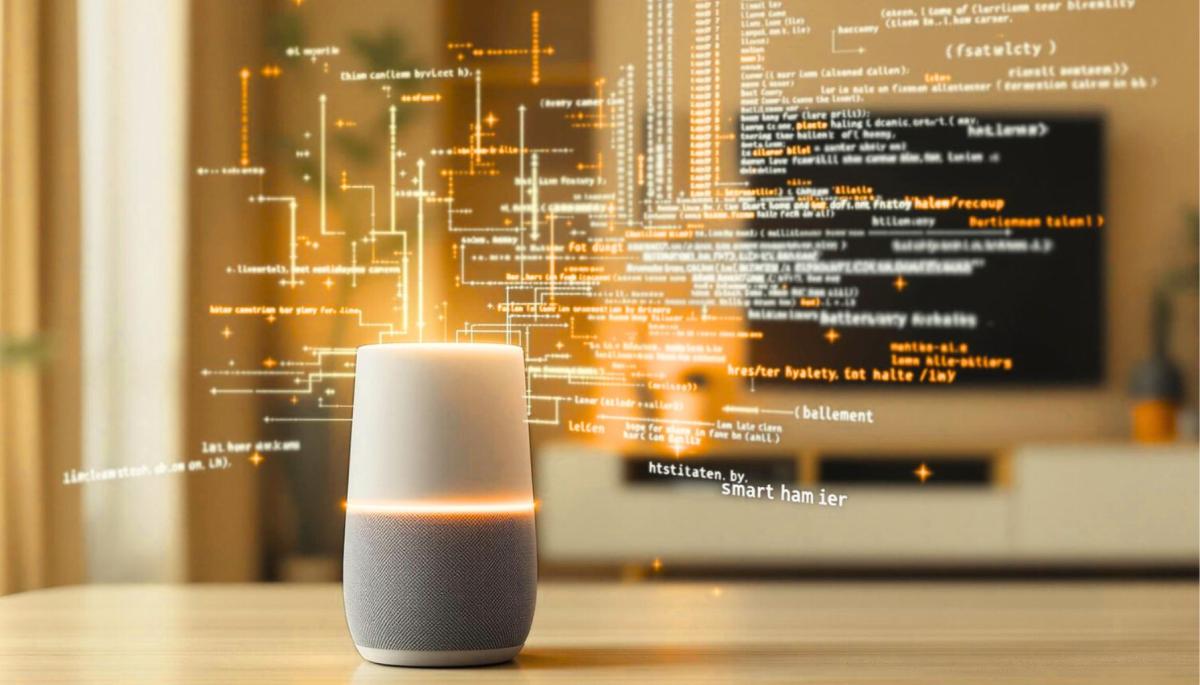With the increasing number of smart devices in households, security risks are also growing. Smart bulbs, doorbells, and fridges know more about us than our best friend. We'll show you how to enjoy the comfort of a smart home while maintaining your privacy.

The number of smart devices in households is growing – for example, in the USA, the average household owns about 13 devices. Some experts, however, point out that the smarter our homes become, the more vulnerable we become. Is a smart home an advantage or a needless burden? Let's take a look together.
What is the Internet of Things?
Imagine that all things around you – your fridge, TV, light bulbs, but also your car or even your flower pot – can 'talk.' Not in human language, but via the internet they send messages and information to each other. This is precisely what the Internet of Things, abbreviated as IoT, is.
According to current estimates, over 27 billion IoT devices were connected worldwide in 2024. These numbers are dramatically increasing each year, with analysts predicting that by 2030 the number of connected devices could exceed 75 billion.
It all sounds great and useful, right? But there's a catch – all these smart things collect a lot of information about us. They know when we're home, what we eat, how we sleep, who we talk to. And that's precisely what a significant portion of experts warns about.
What data do smart devices collect about us?
While you rub your eyes and stretch, your smart bracelet already knows how good your sleep was. It recorded your every move, measured your pulse, and evaluated whether you slept well or tossed and turned all night.
Your phone analyzes which news articles you read during breakfast and how long you linger on each of them. On your way to work, the navigation in your car tracks favorite routes, driving speed, and driving style. Does it sound like sci-fi? Unfortunately, it's not. This is the reality of today's world, where every step we take, every decision we make, and every routine leaves a digital footprint.
Most of this data is collected with good intentions – so technology can serve us better, predict our needs, and save us time and energy. But like every coin, this one has two sides. Imagine if someone had access to all this information.
They would know not only when you're home and when you're not, but also your daily schedule, who you meet, what interests you, and your habits. It's like having a silent observer constantly behind you, keeping a detailed diary about you.

How to protect your privacy in the jungle of smart devices
The basis is realizing that not every device necessarily needs to be connected to the internet. It might be nice to have a smart bulb that turns on when you get home. But does your electric kettle really need to know when you make tea? And does your toothbrush need to send data about how long you brush your teeth?
Buying a smart device
It all starts with the selection and purchase of a smart device. Let's start with the most important thing – the brand and seller. Established companies cannot afford to risk their reputation by selling unsafe products. Moreover, they have the resources to develop security features and regular updates.
Be particularly cautious of devices that do not allow changing the default password or use weak security. Another key thing is updates. The manufacturer should provide regular security patches and fixes. Without them, your device is susceptible to attacks.
Before buying, also find out what data the device will collect and with whom it will share it. All this information should be easily accessible on the manufacturer's website or in their privacy policy. And finally, ask yourself a simple question: Do you really need all the features the device offers? Every additional feature you don't use is like an open window.

Focus on device settings
Before you start using the device, take a moment to set it up correctly. The first step is always changing the default password. Default login credentials are publicly known and often circulate on the internet.
Create a strong password that you can remember, but hackers won't guess. Equally important is securing your Wi-Fi network. And what about functions you don't need? Disable them. Don't need a microphone on a smart bulb or a camera on digital clocks? Go to the app settings and turn them off.
For those who want maximum security, we have an extra tip – create a special network on your router just for smart devices. Also, check the remote access settings. If you don't need to control devices from outside your home, limit access to local network only.
How to recognize if your device has been compromised
There are signs that indicate something may be wrong with your smart device. The first symptom is usually slowdown or unusual behavior. This can indicate a virus infection. The first aid is to restart the device, which can clear harmful programs from memory.
Don't forget regular updates. Some devices update themselves, while for others, you need to check for new versions. When a manufacturer stops releasing updates, replace the device with a new model.
Moreover, turn off devices when they're not in use. You can use a timer that automatically turns off devices, for example, at night or when you're at work. A good option is monitoring your data usage. If your smart home starts consuming significantly more data than usual, it could mean someone is abusing your devices.
The Internet of Things is not a bogeyman we should fear. It's a tool that can improve our daily lives. Smart appliances save energy, monitor our homes, and take on routine tasks for us. However, it's necessary to be cautious and keep track of what data they collect and share.
10 reasons why your phone is drained sooner than expected

It happens that the battery life decreases faster than one would expect, even when the device is not particularly stressed during the day. Often, it's not a single specific error but a sum of small influences that gradually accumulate. This article explains what has the greatest impact on battery life, when idle draining occurs, and why this can turn into an issue causing the phone not to last even one day.
Wi-Fi on a plane? Yes, but it works differently than at home

Connecting to the internet during a flight is no longer an exception, but it still doesn't work as you're used to at home. In-flight Wi-Fi depends on the technology used, the type of aircraft, and network congestion, and paying for access doesn't always mean fast connection. In this article, we'll explain how in-flight internet works, why it can be slow, and when you can rely on it.
RCS messages: what they are, how they work, and when it's better to turn them off

RCS chat is appearing more frequently in mobile devices, especially with the arrival of iOS 18 and the gradual phasing out of older networks. It is a method of communication that uses the internet, offering higher quality sharing of photos and videos than traditional SMS. We'll explain what RCS means and when it makes sense to keep it enabled.
12 steps to prepare a child for their first phone

A first mobile phone can make a child's communication and daily orientation easier, but it also opens topics that are good to address in advance. These include safety, sharing, communication, or screen time. How to prepare a child for their first phone so that they use it safely, calmly, and wisely?
Autonomous vehicles around the world: How close are we to regular driverless operation?

Cities around the world are seeing an increase in autonomous vehicles as part of their transportation systems. However, their reliability varies significantly by region. We will explore where this technology is already commonly transporting passengers and what autonomous driving means in practice today.
Introducing Auracast - the biggest advancement in Bluetooth listening in recent years

Listening to a movie or playlist on multiple headphones has always been difficult. Auracast offers the ability to play the same audio to multiple people without pairing or special accessories. It can be used at home with TV, on trips, and in places with poorly audible announcements. In the article, we will show how this innovation works in practice and when we will start encountering it regularly.